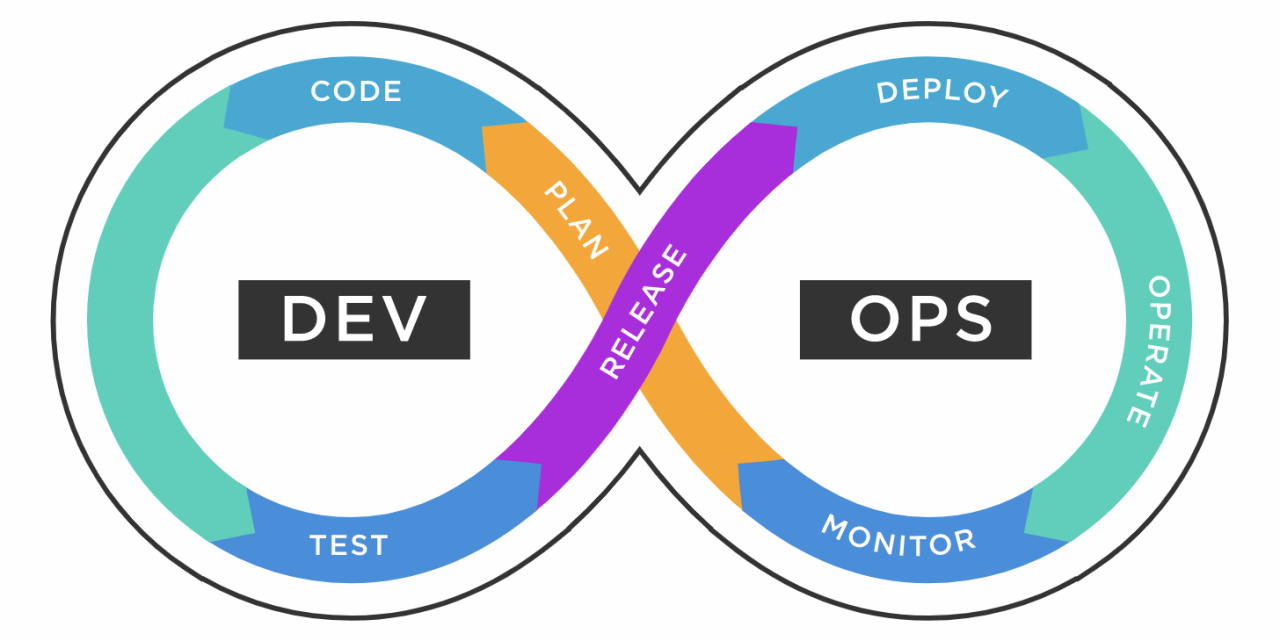In today’s dynamic digital landscape, where companies are vying for relevance and competitiveness, customer experience stands out as a key differentiator. How customers interact with an organization’s digital platforms profoundly shapes their satisfaction and loyalty. With the evolution of DevOps practices, organizations have found a formidable ally in their quest to deliver exceptional customer experiences.
Understand DevOps
More than just a methodology, DevOps is a cultural shift that emphasizes collaboration, communication, and integration between software development (Dev) and IT operations (Ops) teams.
Its primary goal is to automate software delivery and infrastructure changes, enabling organizations to release high-quality products quickly. DevOps fosters a culture of continuous improvement, where feedback loops drive iterative improvements throughout the development lifecycle.
The Connection Between Dev Ops and Customer Experience
While DevOps has traditionally focused on accelerating software delivery and improving operational efficiency, its impact extends beyond internal processes. DevOps principles such as automation, continuous integration, and continuous delivery directly contribute to enriching the customer experience in digital business interactions.
Faster Time to Market
The DevOps Research and Assessment (DORA) 2021 State of DevOps Report reveals compelling statistics. High-performing DevOps teams deploy code 208 times more frequently than low-performing teams, with change lead times 106 times faster.
This accelerated deployment pace enables organizations to quickly bring new features and updates to market and meet customer needs promptly.
Improved Quality and Reliability
According to the same DORA report, high-performing DevOps teams have 7 times lower change failure rates and recover from incidents 2,604 times faster than low performers.
By prioritizing automation and continuous testing, organizations can deliver higher-quality products, exceed customer expectations, and foster trust. Integrating managed QA services into DevOps practices further strengthens this quality-focused approach, ensuring rigorous testing and seamless integration, thereby building customer trust through consistently reliable digital experiences.
Improved Responsiveness
 Zendesk research shows that 69% of customers prefer self-service options for simple requests. With DevOps, organizations can implement self-service portals and automated support systems that provide real-time assistance and minimize response times.
Zendesk research shows that 69% of customers prefer self-service options for simple requests. With DevOps, organizations can implement self-service portals and automated support systems that provide real-time assistance and minimize response times.
This responsiveness ensures uninterrupted access to digital services, increasing overall satisfaction.
Personalization and Customization
Epsilon’s research highlights that 80% of consumers are more likely to make a purchase when brands offer personalized experiences.
DevOps facilitates rapid experimentation and data-driven insights, enabling companies to deliver tailored content and recommendations to individual customers. This customization increases engagement and satisfaction and fosters long-term loyalty.
Seamless Cross-Functional Collaboration:
McKinsey research shows that companies with robust cross-functional collaboration are twice as likely to outperform their peers in customer satisfaction, product quality, and time to market.
DevOps fosters collaboration and transparency across different functional areas, enabling organizations to effectively align their efforts and deliver a cohesive customer experience.
Case Studies
Numerous industry leaders have adopted DevOps principles to improve the customer experience:
Amazon: With more than 300 million active customers, Amazon’s relentless focus on customer satisfaction is palpable. By leveraging DevOps practices, Amazon continuously optimizes its e-commerce platform and logistics infrastructure, ensuring a seamless shopping experience for millions of people worldwide.
Netflix: As the leading streaming service, Netflix relies on DevOps to deliver a superior viewing experience to its 200 million subscribers. Through automated testing and deployment pipelines, Netflix ensures high availability and reliability across devices, keeping viewers engaged and satisfied.
Airbnb: By embracing a DevOps culture, Airbnb has revolutionized the travel and hospitality industry. Through iterative development and rapid experimentation, Airbnb delivers personalized recommendations and streamlined booking experiences that delight guests and hosts alike.
Additional Insights
 DevOps also plays a critical role in improving security and compliance, two factors critical to customer trust. By integrating security practices into the development lifecycle (DevSecOps), organizations can mitigate risk and protect sensitive customer data, further building trust.
DevOps also plays a critical role in improving security and compliance, two factors critical to customer trust. By integrating security practices into the development lifecycle (DevSecOps), organizations can mitigate risk and protect sensitive customer data, further building trust.
In addition, DevOps facilitates scalability and resilience, enabling organizations to quickly adapt to changing market demands and unforeseen challenges. This agility ensures uninterrupted service delivery, even during traffic spikes or system outages, improving the overall customer experience.
In addition, aligning business objectives with technological advances is critical to delivering value to customers. DevOps promotes this alignment by fostering a shared understanding of organizational goals across different departments, ensuring that every initiative contributes to improving customer satisfaction and loyalty.
Conclusion
In the digital age, customer experience is the key determinant of business success. DevOps is emerging as a powerful enabler for organizations looking to increase customer satisfaction and foster long-term loyalty.
By adopting DevOps practices, organizations can accelerate innovation, improve product quality, and deliver personalized experiences that resonate with customers.
As competition intensifies and consumer expectations evolve, DevOps remains a cornerstone of customer-centric digital transformation strategies.






